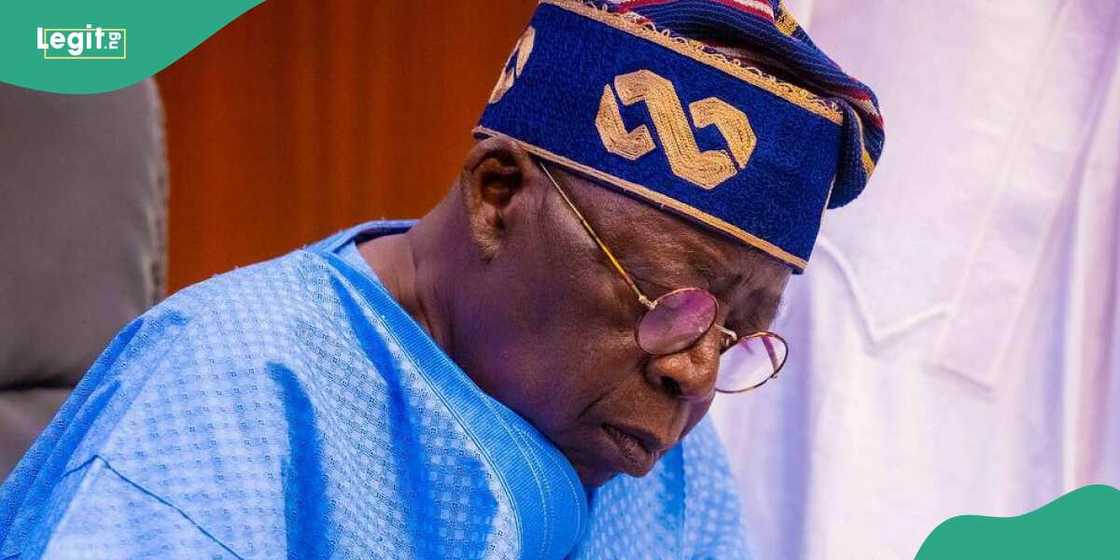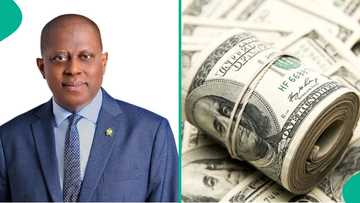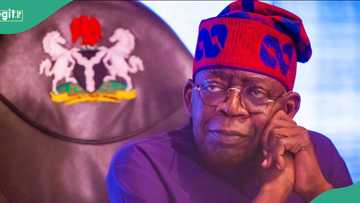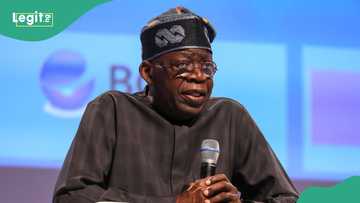Top Sources of Nigeria’s N142 Trillion Debt Emerge as FG Repays Loans to China, IMF, Others
- Debt service repayments have continued to skyrocket, as recent data shows the amount used in debt service in the third quarter of 2024
- Data from the Debt Management Office (DMO) shows that Nigeria’s debt servicing rose in the third quarter for external and domestic obligations
- During the review period, Nigeria’s debt service hit N3.57 trillion, showing an N60 billion quarterly increase
Legit.ng’s Pascal Oparada has reported on tech, energy, stocks, investment and the economy for over a decade.
Nigeria’s debt service costs, external and domestic, increased in Q3 2024, showing the combined effect of increased external debt service payments and currency devaluation.
During the review period, the total debt service cost reached an estimated N3.57 trillion, an increase of N60 billion or 1.71% from N3.51 trillion in the second quarter.

Source: Facebook
Nigeria spends over N1 billion on debt service
According to figures from the Debt Management Office (DMO), external debt service payments in the review quarter amounted to $1.34 billion, translating to N2.14 trillion at the exchange rate of N1,601.03 per dollar.
The second quarter’s external debt service of $1.12 billion was valued at N1.65 trillion on the June FX rate of N1,470.19 per dollar.
The value represents a 29.70% spike in naira terms due to naira decline and higher dollar debt.
The DMO provided the exchange rate for the debt service in its report.
In dollar rate, the Nigerian government spent $1.34 billion on external debt repayment between July and September last year, representing a 19.44% spike from the $1.11 billion recorded in the previous quarter.
The increase in payments was due to higher multilateral and bilateral lenders, including interest payments on commercial loans.
Debt servicing spikes in the third quarter
The DMO data showed that multilateral debt service payments were the most significant component at $712 million in the third quarter, representing a 6.04% spike from $672.01 million in the second quarter.
The development was 53.26% of external debt payments caused by increases in principal repayments and interest rate charges.
According to Punch, the International Monetary Fund (IMF) payments increased slightly to $406.98 million from $404.24 million in the previous quarter.
The DMO disclosed that bilateral service payments saw a significant quarterly increase of 325.52% of $186.92 million from $43.92 million in the second quarter.
The top sources of Nigeria’s debt stock
The increase was due to payments to China’s Exim Bank, which increased to $182.04 million in the third quarter from zero in Q2.
Other lenders include the Exim Bank of India and the French Development Agency (FDA), which recorded payment increases.
Commercial debt services include Eurobonds and other syndicated loans, totalling $438.68 million in the third quarter, representing an 8.48% increase from $404.46 in the second quarter.
Eurobond's interest payment was $427.72 million, maintaining its dominant share of commercial debt service costs.
DMO revealed that domestic debt service for the third quarter was N1.43 trillion from N1.86 trillion in the previous quarter.
Nigeria’s bond interest payments skyrocketed to N1.25 trillion in Q3, representing a quarterly decrease from N1.68 trillion in the previous quarter.
Domestic debt service soars
Eurobond interest payments accounted for $427.72m, maintaining their dominant share of commercial debt service costs.
Reports say bonds have continued to dominate the domestic debt service portfolio, which accounts for 87.41% of total payments in the third quarter, relative to 90.32% in the previous quarter.
The nation’s debt managers disclosed that interest payments on Nigerian Treasury Bills (NTBs) rose to N168.53 billion in the third quarter from N107.86 billion in the previous quarter.
NTB servicing rose by 56.8% every quarter, reaching N61.05 billion in Q3, showing increased dependence on short-term borrowing instruments.
Other components of domestic debt service reflected stability or minor fluctuations.
Per the DMO report, payments on FGN Sukuk bonds stood at N8.28 billion, while interest on FGN bonds was N1.83 billion.
Nigeria’s debt profile rise to N134 trillion
Legit.ng reported that Nigeria’s total debt stock increased to N142.3 trillion as of September 30, 2024, an increase of 5.97% relative to N134.3 trillion in June last year.
The debt comprises external and domestic borrowings and shows the significant effect of exchange rate devaluation on external borrowings in naira terms.
DMO data shows that the country’s external obligations rose slightly by 0.29% from $42.90 billion in June to $43.03 billion in September last year.
However, in local currency terms, Nigeria’s external debt increased by 9.22%, from N63.07 trillion to N68.89 in the first nine months of 2024.
The increase was due to the naira’s depreciation, with the exchange rate declining from N1,470.19 per dollar in June to N1,601.03 by September 30, 2024.
Good news as Sovereign Debt servicing dips
Legit.ng earlier reported that in response to the recent decline in sovereign debt servicing from 97% to 65% of government revenue, President Bola Tinubu said the change indicated the country's economic recovery.
During Monday's swearing-in ceremony for seven new ministers in Abuja, Tinubu declared war on looters and promised to take innovative measures to protect the country's wealth from theft.
He also emphasised these leaders' vital role in helping Nigeria navigate its economic difficulties, highlighting the significance of their commitment and foresight during this crucial time.
Proofread by Kola Muhammed, journalist and copyeditor at Legit.ng
PAY ATTENTION: Сheck out news that is picked exactly for YOU ➡️ find the “Recommended for you” block on the home page and enjoy!
Source: Legit.ng







